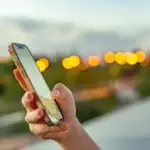In 2025, social media is more than just entertainment—it’s become an integral part of daily life for over 4.9 billion users worldwide. From memes and music to activism and education, it offers a virtual space for expression, connection, and discovery. But as the hours of screen time increase, so do questions about its effects on our mental health.
So, how do we balance the benefits and risks of living online? Let’s take a closer look at the bright side, the darker truths, and realistic solutions that can help protect your mind while staying connected. 🧠💬
🌟 The Good: How Social Media Can Support Mental Wellness
Despite growing concerns, social media can serve as a positive force—especially when used with intention.
✅ 1. Digital Connection in a Disconnected World
Social media keeps us close, even when we’re physically apart. During the COVID-19 pandemic and beyond, it served as a critical lifeline, especially for:
- People living alone or far from loved ones
- Young adults transitioning into college or adulthood
- Those with disabilities or chronic illnesses who find in-person interaction challenging
In 2025, communities like Reddit’s mental health forums, TikTok’s therapy creators, and Facebook support groups help users feel heard and supported. 🌎
✅ 2. Mental Health Education & Destigmatization
Gone are the days when mental health was a taboo topic. Social media has played a huge role in making mental health conversations mainstream.
Popular movements and hashtags:
- #EndTheStigma
- #TherapyIsCool
- #MentalHealthAwarenessMonth
These movements have helped educate millions about:
- Recognizing signs of depression or anxiety
- Coping strategies like grounding, journaling, and deep breathing
- When and how to seek therapy or professional help
📈 According to a 2024 Pew Research survey, 58% of Gen Z users learned about mental health conditions through social media before formal education or healthcare providers.
✅ 3. Creative Outlets and Expression
Platforms like Instagram, YouTube, and TikTok provide spaces for creative release. People express their emotions and share stories through:
- Short films, poetry, and spoken word 🎬
- Music, dance, and humor 🎶
- Art therapy pages and mood boards 🎨
This kind of sharing fosters empathy, reduces isolation, and can be therapeutic for both the creator and the audience.
⚠️ The Bad: The Mental Health Risks of Social Media
❌ 1. Social Comparison and Self-Esteem Issues
Platforms often portray highly curated, filtered realities—leading users to compare themselves to unrealistic standards of beauty, success, or lifestyle.
- Instagram and TikTok filters can distort body image and cause body dysmorphia
- Seeing peers’ “highlight reels” can lead to feelings of failure or envy
- “Comparison fatigue” can cause decreased life satisfaction, especially among teens
😞 “I started to feel like everyone was doing better than me—even though deep down, I knew it wasn’t the full story.” —Rachel, 19
❌ 2. Information Overload and Anxiety
From global crises to personal drama, social media often bombards users with a non-stop stream of emotionally charged content.
This can cause:
- Doomscrolling: compulsively checking bad news for hours
- Hypervigilance: constant state of alertness, leading to burnout
- Sleep disruption due to blue light and late-night scrolling
A 2025 study by the American Psychological Association found that over 60% of adults reported feeling mentally exhausted from social media exposure during high-conflict news cycles.
❌ 3. Cyberbullying and Online Harassment
Social media can be a hostile space—especially for marginalized users, teens, and public figures.
Common issues include:
- Harassment in DMs or comments
- “Cancel culture” and public shaming
- Trolling and hate speech
Victims of online bullying often report symptoms of:
- Anxiety
- Depression
- Suicidal thoughts
🛠️ The Solutions: How to Protect Your Mental Health Online
The good news? You don’t have to delete all your apps or live off-grid. There are practical steps you can take to use social media more mindfully and protectively.
💡 1. Audit and Curate Your Feed
Follow accounts that make you feel:
- Educated
- Inspired
- Uplifted
And unfollow or mute those that:
- Trigger insecurity
- Promote toxic positivity
- Spread misinformation
🧼 Think of your social feed like your room—clean it regularly for a healthier mental space.
💡 2. Set Healthy Time Limits
Using screen time settings, digital wellbeing apps, or even just a timer can help you avoid unhealthy scrolling habits.
Some popular apps in 2025:
- Opal – locks you out of distracting apps
- Forest – grows a virtual tree when you stay off your phone
- One Sec – adds a 1-second delay before opening an app, helping you pause and reflect
🎯 Goal: Keep social media use under 2 hours/day for better mental health, as suggested by the University of Pennsylvania Digital Behavior Lab.
💡 3. Take Regular Breaks
“Digital detox” doesn’t mean forever—it just means stepping back to reset.
- Try a Sabbath day (one day a week off social)
- Block notifications after 8 p.m.
- Use “Do Not Disturb” during work or school hours
Breaks are proven to:
- Improve sleep quality
- Reduce anxiety
- Increase productivity and focus
💡 4. Be Real—Authenticity > Aesthetics
Normalize sharing both highs and lows. You don’t have to post only polished, perfect moments. Vulnerability online can:
- Build deeper connections
- Reduce pressure to be perfect
- Help others feel less alone
🌿 Be the reason someone feels okay being themselves online.
💡 5. Prioritize Real-Life Relationships
No amount of likes can replace a real hug, laugh, or deep conversation. Nurture offline connections by:
- Scheduling weekly meetups or calls
- Engaging in hobbies outside of tech
- Joining clubs, volunteering, or sports teams
🧾 Quick Recap
| What to Watch | What to Do |
|---|---|
| Comparison traps 🪞 | Follow uplifting content ✅ |
| Doomscrolling 🌀 | Use time-limiting apps ⏱️ |
| Cyberbullying 🚫 | Block/report, and seek support 🤝 |
| Unrealistic lifestyles 💎 | Focus on real-life values 🌱 |
| Social fatigue 😵 | Take regular breaks 🧘♂️ |
🧠 Mental Health Support Resources
Need help? You’re not alone. Reach out.
- Crisis Text Line – Text HOME to 741741
- 988 Suicide & Crisis Lifeline – Call or text 988
- BetterHelp – Online therapy platform
- Mental Health America – www.mhanational.org
- Headspace & Calm – Guided meditation and mindfulness apps
💬 Final Thought: It’s About Balance, Not Ban
Social media is neither your enemy nor your savior—it’s a mirror of how you use it.
When used consciously, it can empower, connect, and educate. When used compulsively, it can harm your self-image, sleep, and peace of mind. The key is awareness, boundaries, and balance.
🌈 “You don’t need to unplug forever. You just need to plug back into yourself more often.”






